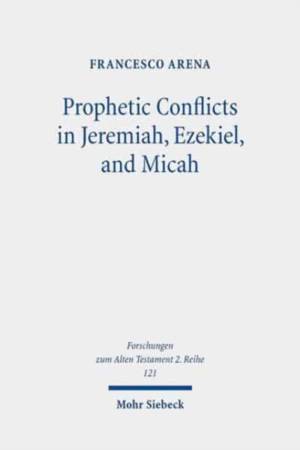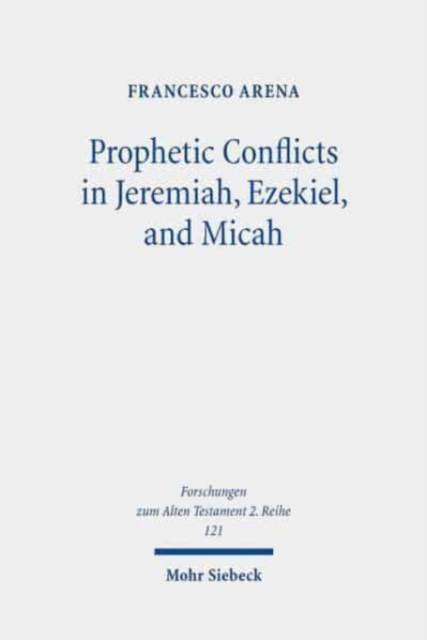
- Afhalen na 1 uur in een winkel met voorraad
- Gratis thuislevering in België vanaf € 30
- Ruim aanbod met 7 miljoen producten
- Afhalen na 1 uur in een winkel met voorraad
- Gratis thuislevering in België vanaf € 30
- Ruim aanbod met 7 miljoen producten
Zoeken
Prophetic Conflicts in Jeremiah, Ezekiel, and Micah
How Post-Exilic Ideologies Created the False (and the True) Prophets
Francesco Arena
€ 180,45
+ 360 punten
Omschrijving
In this volume, Francesco Arena investigates false prophecy and prophetic conflicts, taking Jeremiah, Ezekiel, and Micah as the three books in the Bible most concerned with prophesying falsehood and false prophets. By building on the studies of G. Auld, R. Carroll, and G. Garbini, who first posited that the Writing Prophets were not prophets at all, but rather intellectuals or poets, the author puts the vexed question of false prophecy into a new perspective. If we accept that Jeremiah, Ezekiel, and Micah were not originally true prophets (or prophets at all) what should we do with their quarrels with the alleged false prophets? Can we still consider prophetic conflicts as expressions of a socio-religious phenomenon? Or should we instead consider them as some later creations to serve ideological purposes?
Specificaties
Betrokkenen
- Auteur(s):
- Uitgeverij:
Inhoud
- Aantal bladzijden:
- 223
- Taal:
- Engels
- Reeks:
- Reeksnummer:
- nr. 121
Eigenschappen
- Productcode (EAN):
- 9783161595073
- Verschijningsdatum:
- 1/07/2020
- Uitvoering:
- Paperback
- Formaat:
- Trade paperback (VS)
- Afmetingen:
- 231 mm x 155 mm
- Gewicht:
- 343 g

Alleen bij Standaard Boekhandel
+ 360 punten op je klantenkaart van Standaard Boekhandel
Beoordelingen
We publiceren alleen reviews die voldoen aan de voorwaarden voor reviews. Bekijk onze voorwaarden voor reviews.











